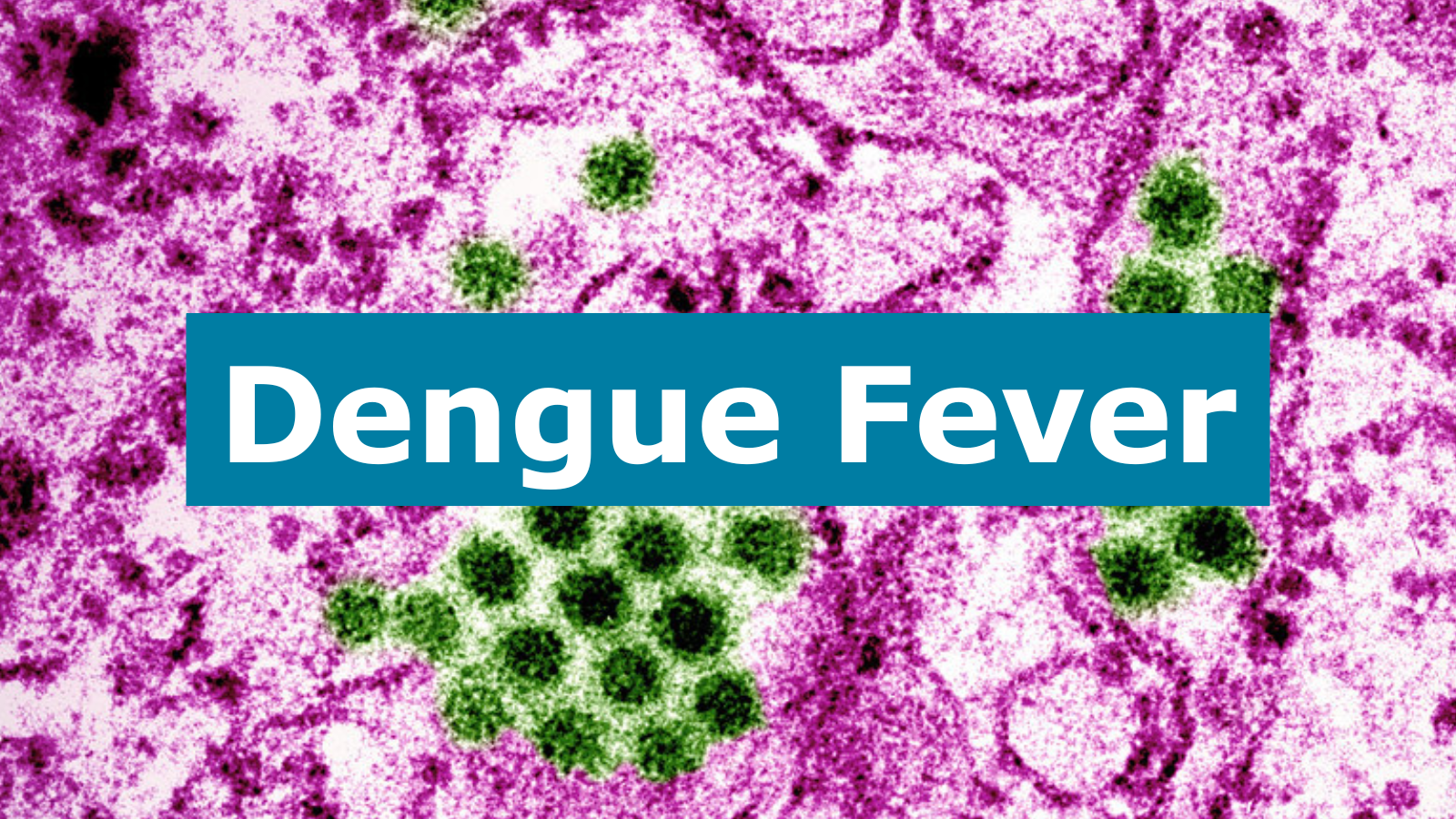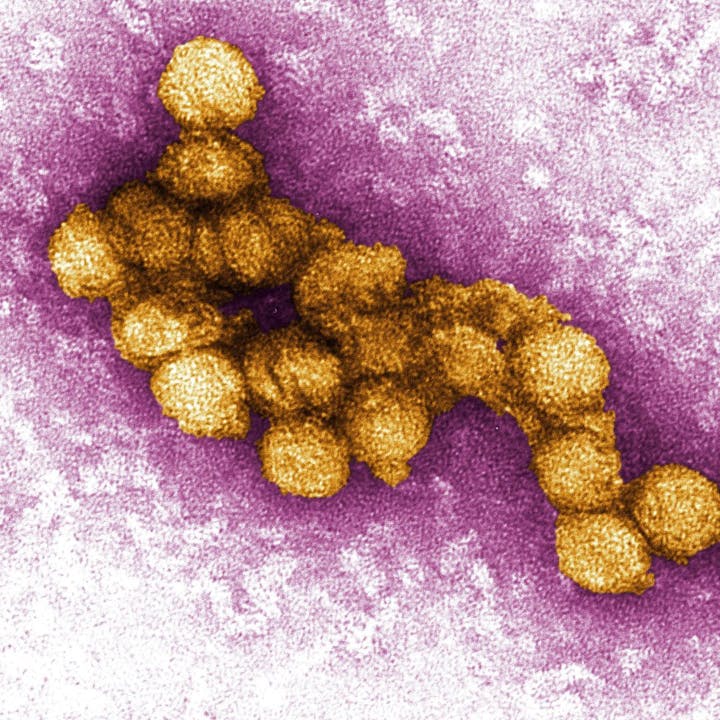Dengue Fever

Dengue virus (DENV) is a mosquito-borne virus that can cause mild to severe acute febrile illness in humans. It is now endemic year round in most countries in the tropics and sub tropics. Dengue fever can progress to dengue hemorrhagic fever (DHF) and dengue shock syndrome (DSS), which are potentially life-threatening. Cases of dengue fever often experience a sudden onset of fever greater than 101 degrees Fahrenheit (lasting 2-7 days.)
Symptoms include:
- Intense headache
- Muscle pain
- Joint Pain
- Bone pain
- Retro-orbital pain
- Loss of appetite
- Vomiting
- Rash
Illness usually follows three stages; febrile, critical, and convalescent. Warning signs that dengue fever is progressing to severe disease occur in the late febrile stage and include persistent vomiting, severe abdominal pain, bleeding from mucous membranes (e.g., nose and, mouth), and difficulty breathing.
Diagnosis:
- About 75% of infections with DENV do not have symptoms
- DENV can be detected in samples of blood in almost all patients 6-7 days after the onset of fever
- Infections with DENV must be differentiated from other viruses that cause similar symptoms such as chikungunya virus (CHIKV).

Transmission:
- DENV is transmitted through the bite of an infected mosquito, principally Aedes aegypti (yellow fever mosquito) and Aedes albopictus (Asian tiger mosquito)
- Transmission cycle is maintained between humans and mosquitoes
- DENV becomes present and transmittable in a person’s blood within two weeks after being bitten by an infected mosquito.
Risk Groups:
- All people living where DENV is endemic should be considered at risk
- Persons traveling to areas where DENV is endemic.
Dengue virus is the leading cause of febrile illness among travelers to the Caribbean, South America, and south central/southeast Asia.
Prevention:
- Currently, no vaccine is available
- Mosquito bite prevention is the only means of defense. Use mosquito repellent, wear long sleeves and long pants while spending time outdoors, and ensure screens on windows and doors are tightly sealed and in good repair. DUMP and DRAIN standing water where mosquitoes can grow
- Timely identification of cases and good clinical management of dengue patients are essential
For more information follow these links:
http://www.cdc.gov/Dengue
https://www.who.int/news-room/fact-sheets/detail/dengue-and-severe-dengue
http://www.healthmap.org/dengue/en/






